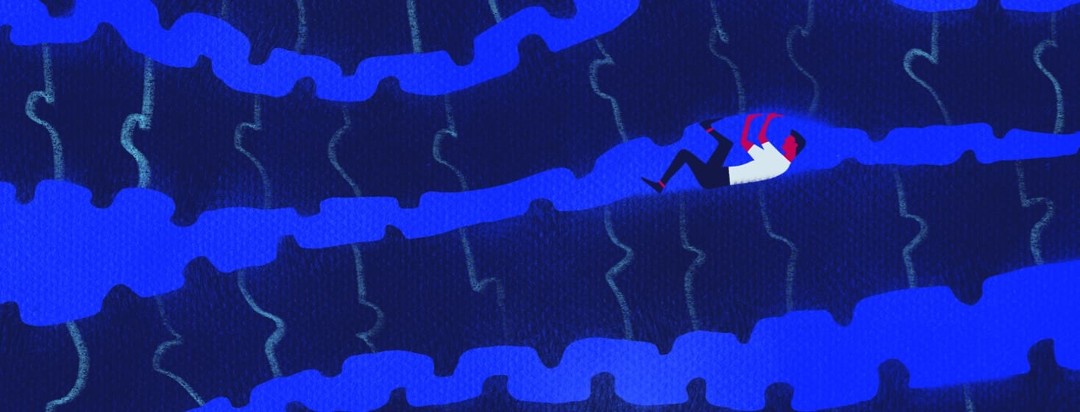[DO NOT PUBLISH] The Deep Grief Of Diagnosis
If you’ve been dragged through the diagnosis process for any disease, you’ll know that it takes forever to get clear results, to find a doctor who actually, truly sees you, and to find your way through the labyrinthine chaos of pain management and medication and support. It's A LOT.
And some AS patients have to do this alone. Some of us have support groups or access to community resources, but many don't. Each journey is individual and stressful — because one day you're you, and the next day, you're so off.
It takes years to get a diagnosis
Because ankylosing spondylitis is notoriously tricky when it comes to securing a diagnosis, people often wait years and years (in my case, almost a decade) for theirs. To make things more complicated, it’s not uncommon for doctors to ignore or reduce symptoms or tell patients that they’re exaggerating or perhaps making it all up in their minds. If you're here reading this, you'll likely know that this happens.
So when you finally do get a diagnosis, you are left reeling from both the process and any of the emotional trauma that it brought to the surface. Often times people feel an intense amount of grief when it comes to the actual diagnosis, and this is probably the case for anyone with a chronic illness across-the-board. It's not that the diagnosis is a shocker for many of us, it's that there's a gravitas — a finality — attached to the piece of paper.
The diagnosis says: You will never be the same. You will only ever be you, but a limited version. You will struggle.
Then everything changes
Because when we get that diagnosis, we know that our bodies have changed, forever. And maybe it comes with an inability to do the things that we used to do, to feel the vigor and brightness of a life not marred by a constant fog pain and fatigue. In this moment, you feel a sense of loss, as though you are grieving yourself — the you that existed before the you now.
And that loss can trigger identity issues (who am I now?), fear about the future, and it can literally impact your relationships, romantic, sexual or otherwise, and your job opportunities.
Even though I knew I had ankylosing spondylitis for many years before I was officially diagnosed, the diagnosis itself felt like a nail in the proverbial coffin. I was 32, healthy, and very mobile. Although my pain levels were through the roof, it scared me to think that my body and myself as I knew it, might change in the years ahead.
It affects your mental health
For anyone who has a background of trauma or mental illness, a diagnosis can be triggering. I had an unstable childhood and lived for many years in foster care. Both of my parents suffered from addiction, and we were poverty-stricken for most of my life. And so the diagnosis shattered me in a deep, systemic way.
In those weeks afterward, I vacillated between self-pity and extreme obsession over my future — would I travel? Could I die? Would I become a shell of myself? Why do bad things always happen to me? — and exasperation verging on disbelief. How could doctors simply diagnose you and then send you on your way?
Is life this cruel?
"You'll just need to take this medicine that could cause cancer down the line," my rheumatologist essentially said. My first and most immediate thought was, "Surely I don't need medicine."
And then I thought was: Is life this cruel?
The fact is, and I have learned this over the year: It is, and it isn't.
The grief came in waves, and after about a year, it took a new shape. It looks and feels like acceptance, but sometimes flare-ups can trigger a relapse in my thinking. I stay up at night thinking about the future or reading AS horror stories on Facebook, and it does get to me.
With life comes pain and loss
But I also know that life is sometimes studded with pain and loss. That it's what we do in reaction to those realizations and experiences that matter. So I decided to lead with compassion, to help others, to write my story so other patients aren't so alone, and to support people when they're sick or grieving. I decided to get some perspective and look at all the miraculous and beautiful things about my life. Like seeing the morning light and having the ability to write books and connecting with others.
The shadows are always lurking, and sometimes it's okay to let them in. But you have to know when to tell them to leave. That's the best way I can describe my grief.

Join the conversation